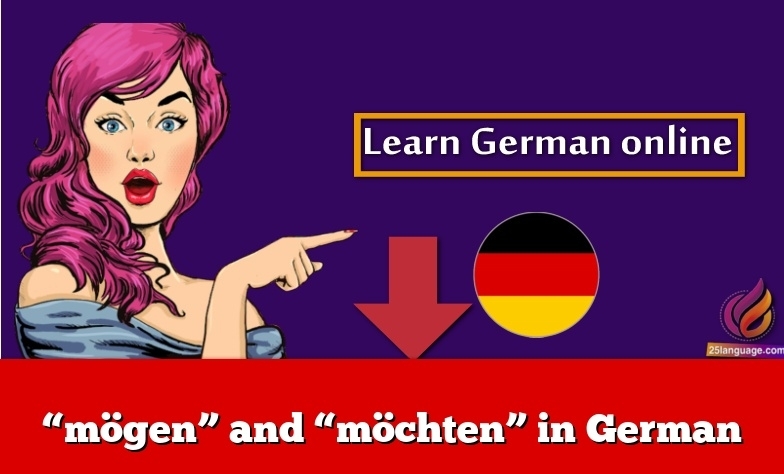“mögen” and “möchten” in German

“mögen” and “möchten” in German.When diving into the intricacies of the German language, learners often encounter challenges understanding and correctly employing various verbs.Two such verbs are “mögen” and “möchten”. Although stemming from the same root and sharing numerous similarities, they each have distinct implications and usages in sentences.

Explanation about “mögen” and “möchten” in German
- mögen:
- Meaning: “mögen” primarily means “to like”.
- Part of Speech: It’s a modal verb.
- Usage: “mögen” is used to express a general liking or preference for something or someone.
- Example:
- Ich mag Schokolade. (I like chocolate.)
- Magst du Kaffee? (Do you like coffee?)
- möchten:
- Meaning: “möchten” is the subjunctive II form of “mögen”, which is used to express a wish or a polite request. It’s equivalent to “would like” in English.
- Part of Speech: While it’s derived from a modal verb, “möchten” functions more like a verb of its own in modern German due to its specialized usage.
- Usage: “möchten” is used to indicate a desire or preference, especially when making requests or expressing wishes.
- Example:
- Ich möchte ein Glas Wasser, bitte. (I would like a glass of water, please.)
- Möchtest du ins Kino gehen? (Would you like to go to the cinema?)
Key Takeaways:
- While both verbs relate to preferences or desires, “mögen” is a statement of general preference (“to like”), whereas “möchten” is more about expressing a specific wish or request (“would like”).
- If you’re expressing a general liking for something, “mögen” is your verb. But if you’re making a polite request or stating a specific wish, “möchten” is more appropriate.
Examples for using “mögen” and “möchten” in German
| Verb | Meaning | Example (German) | Translation (English) |
|---|---|---|---|
| mögen | to like | Ich mag Äpfel. | I like apples. |
| Sie mag das Buch nicht. | She doesn’t like the book. | ||
| Magst du Hunde? | Do you like dogs? | ||
| möchten | would like (a wish or polite request) | Ich möchte einen Tee, bitte. | I would like a tea, please. |
| Möchten Sie tanzen? | Would you like to dance? | ||
| Er möchte nach Hause gehen. | He would like to go home. |
In conclusion, grasping the distinctions between “mögen” and “möchten” remains crucial for anyone striving for proficiency in the German language. These terms are not merely expressions of liking or desiring; they also showcase the precision and intricacies of the German linguistic structure.





























